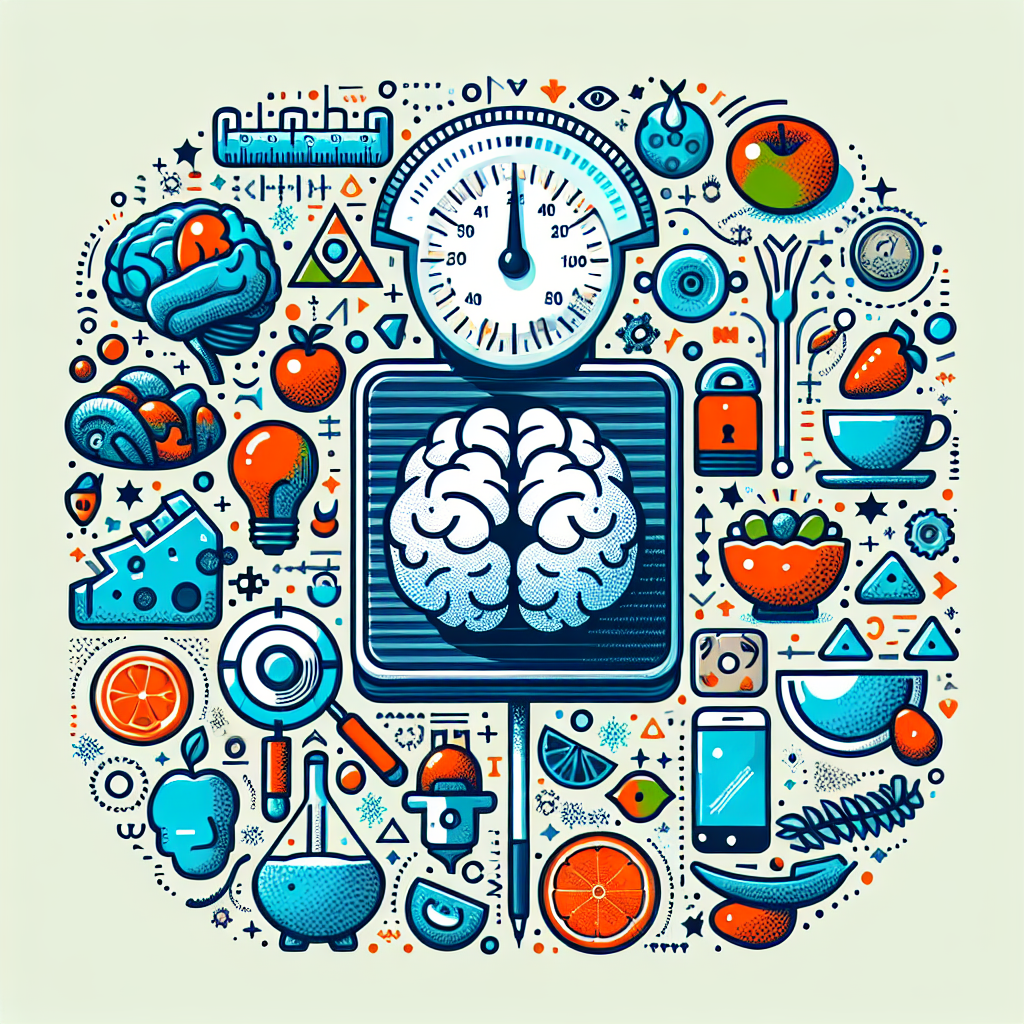
Noom Psychology Hacks: The Behavioral Science That Makes This Diet Different
In today’s crowded landscape of fad diets and trendy health apps, Noom stands out with its unique foundation: psychology. Unlike traditional weight-loss programs that focus only on what’s on your plate, Noom helps users understand why they eat what they eat. Built on the principles of behavioral science and psychology, Noom provides tools for long-term weight loss by targeting the habits behind food choices.
Let’s explore how Noom’s psychological strategies create lasting change—and how they might help you finally break free from the diet cycle.
Mind Over Meal: What Really Makes Noom Different
Noom is more than just a food tracking app. It acts as a virtual wellness coach using principles from Cognitive Behavioral Therapy (CBT). CBT focuses on reshaping how you think so you can form healthier habits.
According to registered dietitian and nutrition expert Dr. Samantha Cassetty, “Noom doesn’t just focus on the ‘what’—it asks ‘why’. That’s where lasting transformation truly begins.”
Rather than eliminate certain foods, Noom encourages users to explore triggers behind their hunger. Consider this: before reaching for a sugary snack, the app may ask you to pause and ask yourself if you’re really hungry—or just stressed. These reflective moments can greatly improve self-awareness and promote healthier decision-making.
One 2020 study published in Scientific Reports found that users of psychology-based dieting apps maintained weight loss better over a year compared to those using traditional dieting methods.
Discovering Your “Ultimate Why”: How Motivation Becomes a Superpower
One core feature of Noom’s philosophy is helping users find their “Ultimate Why”—a deeply personal reason for wanting to change. This goes beyond superficial goals like “lose 10 lbs” and instead encourages users to uncover what truly motivates them, such as:
– Boosting energy to keep up with your kids
– Reducing health risks like diabetes
– Gaining self-confidence
This shift promotes intrinsic motivation, which researchers Deci and Ryan note as being more effective for lasting behavior change over time.
Take Jenna, a Noom user, as an example. “When I realized I wanted to be a better role model for my daughter, something just clicked,” she said. “That became my reason to keep going—even on tough days.”
Connecting with your deeper purpose creates a powerful reason to stay consistent.
Color-Coded Food Choices That Teach Intuition, Not Guilt
One of Noom’s easy-to-follow methods is its color system for food:
– Green: Low-calorie, nutrient-rich foods (like spinach and apples)
– Yellow: Moderate calorie foods (like chicken breast and avocado)
– Red: Higher-calorie, less nutritious options (e.g., cookies and pizza)
This simple yet effective visual cue system helps people gauge their food choices without restriction. You’re not told “no”—you’re guided to make more balanced decisions.
“Color systems like Noom’s reduce cognitive overload during meal planning,” says clinical psychologist Dr. Susan Albers. “You don’t obsess over counting points. You develop food intuition.”
Research supports this method. A 2021 review in Obesity Reviews shows that flexible approaches to dieting work better than rigid, rule-based ones. Flexible plans lead to improved long-term weight maintenance and fewer binge episodes.
Understanding the “Elephant and Rider”: Emotional Choices vs. Rational Goals
Have you ever planned to eat healthy, but ate cake instead? Noom helps explain this through a concept known as the “Elephant and Rider” metaphor. The Elephant represents your emotional, impulsive side. The Rider symbolizes your logical, goal-driven self. Both parts need to work together for successful, consistent behavior change.
Noom’s daily tips and lessons help you recognize this internal conflict. If you feel sad and want to indulge in emotional eating, Noom may suggest healthier alternatives like journaling, walking, or deep breathing to soothe your mood.
As Dr. Jonathan Haidt—whose metaphor inspired these lessons—explains, “You don’t overpower the Elephant—you motivate it. Understanding emotion is foundational to change.”
Noom helps you align emotional and rational thinking, creating conditions for smart, mindful decision-making.
Celebrating Small Wins for Big Motivation
Long-term progress often starts with small victories. With Noom, users aren’t told to “lose 30 pounds.” Instead, they’re encouraged to take consistent, achievable steps like:
– “Add one vegetable to dinner”
– “Walk five extra minutes today”
Research from Health Psychology reveals that tracking and celebrating micro-wins boosts long-term commitment to new routines. In fact, people who track these small achievements are 76% more likely to stick with their lifestyle changes.
Noom offers daily check-ins and visual progress badges, which keeps motivation high and momentum going.
Using Habit Loops to Rewire Your Daily Routine
One of Noom’s most impactful psychological tools is the habit loop framework:
Trigger → Behavior → Reward
An example: you feel stressed (trigger), eat ice cream (behavior), and feel temporary relief (reward).
Noom teaches users to recognize these patterns and replace unhealthy responses with better options—like going for a walk, deep breathing, or calling a friend when stress hits. These practices begin to form new automatic habits.
James Clear, author of Atomic Habits, explains: “You don’t eliminate old habits—you replace them. You make the old path harder and the new one easier through repetition.”
Noom’s in-app habit trackers help users visualize their progress and identify triggers in advance, making healthy decisions simpler and less stressful.
The Results: Why Noom’s Psychology-Based Approach Works
Unlike many diet programs that focus exclusively on food or movement, Noom uses a full-behavioral model that addresses mindset, emotional triggers, and daily habit formation. This 360-degree strategy has a proven track record.
According to a 2016 clinical study, 77% of Noom users experienced weight loss, and most kept it off after nine months. That level of consistency is rare in the weight loss world—and shows that psychological tools make a lasting difference.
For those also working on mental health, emotional eating, or stress management, Noom can be part of a comprehensive self-care plan. Websites like eDrugstore.com complement this approach with telehealth services for sexual wellness, medical consultations, and online prescriptions.
A Kinder, Smarter Approach to Weight Loss
In a world of strict rules and overpromises, Noom stands out because it works with your psychology—not against it. By focusing on internal motivation, emotional awareness, and habit-building, Noom offers something rare: a sustainable, science-backed way to build a healthier life.
Whether you’re tired of extreme diets or looking to make thoughtful, lasting changes, Noom provides the tools and mindset to help you succeed—without guilt or shame.
Ready to change your habits and reset your relationship with food? Noom might just be the program your brain—and body—have been waiting for.
Get Started Today
Want more actionable tips on creating long-term wellness through behavior change? Subscribe to our newsletter for weekly insights grounded in psychology, nutrition, and real-world results.
References
1. Chin, S. H., Kahathuduwa, C. N., & Binks, M. (2020). Physical activity and obesity: What we know and what we need to know. Scientific Reports.
2. Deci, E. L., & Ryan, R. M. (2000). The “what” and “why” of goal pursuits: Human needs and the self-determination of behavior. Psychological Inquiry.
3. Meaders, M. L., & Wegner, D. M. (2021). Flexible vs. rigid restraint in dieting: A meta-analysis. Obesity Reviews.
4. Amabile, T., & Kramer, S. (2011). The Progress Principle: Using Small Wins to Ignite Joy, Engagement, and Creativity at Work.
5. Michie, S., Richardson, M., & Johnston, M. (2017). Health psychology and behavior change tracking: Review of behavior change techniques. Health Psychology.
6. Munguia, L., et al. (2016). Mobile health weight loss program effectiveness: Initial results from Noom Inc. Journal of Health Communication.


